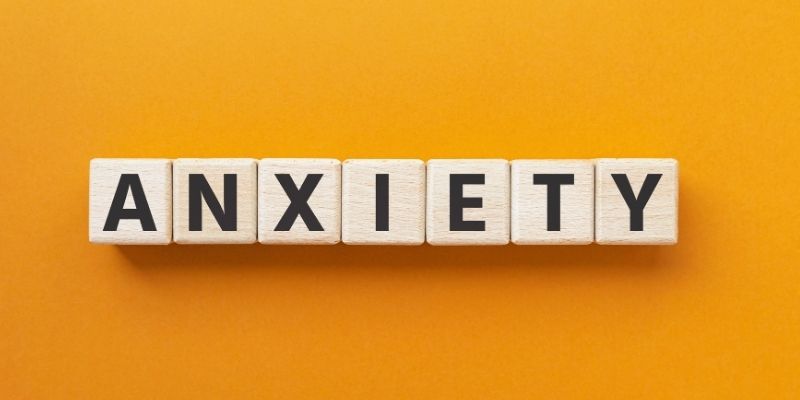Biking to school or work is not simply a way of commuting that is designed to get one to A and B but it becomes a way of life. It is good to your health, cost effective, less stressful and environmental friendly. Living in one of the busiest cities in the world or a small town, biking to work is a dessert.
1. Boosts Your Physical Health Naturally

Cycling is a full-body workout that improves cardiovascular health, builds muscle strength, and enhances flexibility. It's a low-impact exercise that’s gentle on the joints, making it suitable for people of all fitness levels.
A simple way to stay fit
Cycling is a low-impact exercise that strengthens your legs, core, and heart while being easy on your joints. It's an activity almost anyone can enjoy, regardless of fitness level or age, making it a great way to stay active. Unlike the gym, biking fits easily into your daily routine. Whether you’re commuting, running errands, or exploring a trail, cycling keeps you moving without extra effort or expensive gear—just hop on and go.
Builds endurance and stamina
Daily cycling offers incredible health benefits. It improves heart rate, boosts lung capacity, and tones your legs and core. As you make it a habit, you’ll see improvements in endurance, energy, focus, and sleep. It’s a simple, effective way to boost both physical and mental well-being.
2. Saves You Money Every Month
Cycling is one of the most cost-effective ways to get around while staying active. By replacing car trips with your bike, you can save on gas, maintenance, and parking fees.
Avoid fuel and parking costs
Biking to work cuts out daily fuel expenses, parking fees, tolls, and car maintenance. With rising fuel and parking costs, these savings can add up fast. Over time, that’s money you can use for hobbies, travel, or your emergency fund. Plus, no more stressing over parking or sitting in traffic—you’ll save time too.
Fewer repairs and less spending
Bikes are cheaper and easier to maintain than cars. Basic services like brake adjustments or tire replacements cost far less than oil changes or engine repairs. Maintenance is quick and simple, so you’ll spend less time in workshops and more time riding—and saving..
3. Reduces Your Carbon Footprint
Choosing to bike instead of drive is an eco-friendly decision that helps combat climate change. Bicycles produce zero emissions, making them a sustainable alternative to cars for commuting and short trips.
A cleaner way to commute
Bicycles produce zero emissions, making them one of the most eco-friendly ways to travel. Riding instead of driving helps reduce air pollution, greenhouse gas emissions, and reliance on fossil fuels. Cars, especially for short trips, are a big source of urban air pollution. If more people chose bikes for errands or commutes, it would greatly improve air quality and public health. Plus, cycling keeps you active and benefits the planet!
Support sustainable transport
Biking to work or school is more than just a personal choice—it’s a way to support greener, more sustainable cities. Many towns and cities are recognizing the importance of cycling and investing in better infrastructure like dedicated bike lanes, bike-sharing programs, and safer road designs for cyclists. As a cyclist, you’re part of a growing movement advocating for cleaner, healthier urban environments.
4. Improves Mental Well-being
Physical activity, such as biking, is a proven way to boost mental health. It helps reduce stress levels, improve mood, and combat feelings of anxiety or depression.
Clear your mind on the way to work
Cycling gives you a chance to reflect, unwind, and enjoy your surroundings in a way that other forms of commuting simply can't match. Unlike sitting in traffic or being crammed into public transport, riding a bike allows you to stay present, take in the sights, and feel the fresh air on your skin. This can help lower stress levels, ease anxiety, and set a positive tone for the day ahead.
Boosts mood and confidence
Exercise is a natural mood booster, thanks to the release of endorphins—those feel-good chemicals that reduce stress and improve your overall mental health. As you make biking a regular habit, you’ll start to feel not just physically stronger but also mentally empowered. Over time, you’ll notice a boost in your self-esteem, a greater sense of accomplishment, and an overall feeling of well-being.
5. Saves Time in Traffic
Sitting in traffic can be frustrating and time-consuming, eating away at your day. Choosing to bike instead allows you to bypass congested roads and reach your destination more efficiently.
Skip the daily traffic jams
In busy cities and congested areas, traffic can eat up hours of your time every week. Sitting in long queues, dealing with stop-and-go traffic, and searching endlessly for parking can be exhausting. A bike offers a simple solution, allowing you to breeze past traffic jams and avoid the frustration of being stuck in your car.
Easy parking and less hassle
Finding a parking spot for your car can take forever, especially in crowded areas where spaces are limited. With a bike, parking becomes incredibly easy and convenient. It takes just seconds to lock up your bike, and you can generally park it right near your office, school, or building entrance.
6. Strengthens Community and Connection
Cycling fosters a sense of community by bringing people together. Whether through group rides, local events, or bike-friendly initiatives, it creates opportunities to connect with others who share similar interests.
Encourages social interaction
Biking connects you to your surroundings in ways driving can’t. You’re more likely to greet neighbors, stop to chat with friends, or discover hidden gems like local shops or parks. This interaction fosters a stronger sense of community and creates opportunities to build meaningful connections.
Builds a biking culture
When others see you biking to work or running errands, it can inspire them to try it too. Over time, this creates a ripple effect, with more people in your community biking for exercise, commuting, or leisure. As it becomes common, biking promotes healthier habits, unity, and an environmentally conscious, active community..
Tips for Getting Started

Getting started with biking doesn’t have to be overwhelming. With a little preparation and the right mindset, you can make your cycling adventures safe, enjoyable, and rewarding.
Pick the Right Bike for Your Commute
Start by choosing a bike that suits your daily route. For short city rides, a simple commuter or hybrid bike works well. If your path includes hills or longer distances, consider a road or electric-assist bike for extra support.
Make Safety Your Top Priority
Always wear a properly fitted helmet. Add front and rear lights, especially if you ride early in the morning or in the evening. Use reflective gear and obey traffic signals—ride as if you were driving a car.
Plan a Comfortable Route
Look for bike-friendly roads, lanes, or dedicated cycle paths. Use apps or online maps to find low-traffic routes. Doing a test ride on a weekend can help you feel more confident before your first workday ride.
Final Thoughts
Biking to work offers health, financial, and emotional benefits that few other habits can match. It’s a sustainable and practical way to improve your daily routine. Whether you’re trying to stay fit, save money, or just want a break from the car, cycling gives you control over your commute in the best possible way. So, grab your helmet, pump up those tires, and start pedalling your way to a healthier, happier life—one ride at a time.












